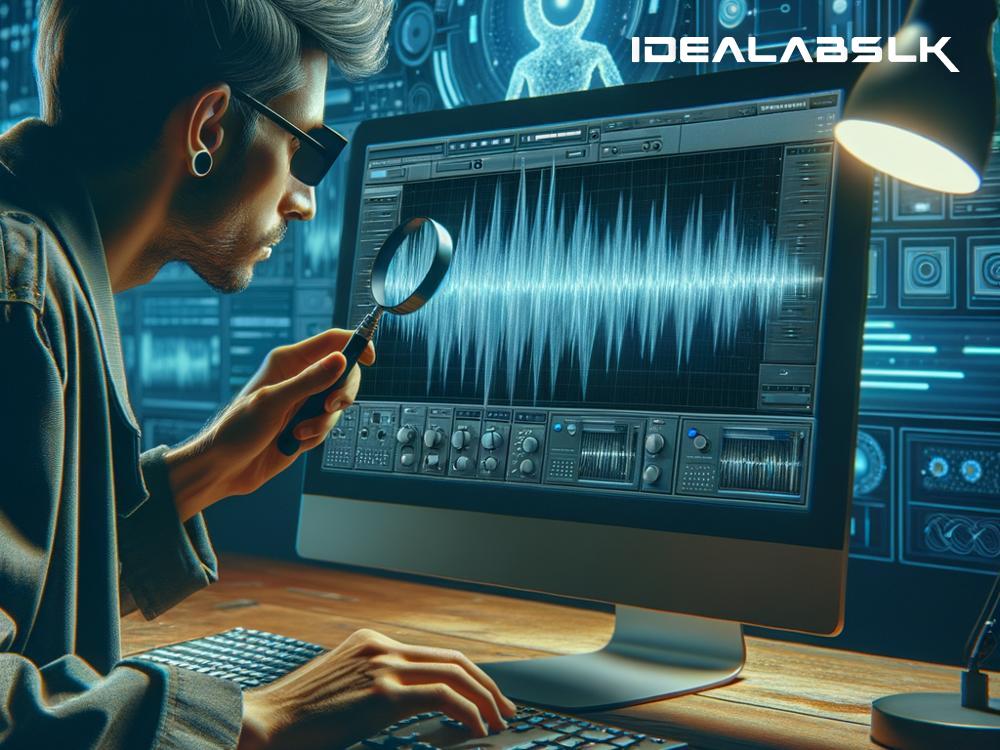AI-Powered Audio: The Future of Sound Design in 2025's Video Games
In the rapidly evolving world of technology, artificial intelligence (AI) has been a game-changer in numerous fields, including gaming. One of the most exciting advancements is the integration of AI in audio and sound design within video games. As we look forward to 2025, it's clear that machine learning, a subset of AI, is set to revolutionize how we experience sounds in games, making them more immersive, realistic, and interactive than ever before. Let's dive into how AI-powered audio will transform the future of sound design in video games by 2025.
What's Changing?
Traditionally, video game soundtracks and sound effects were pre-recorded and played back in response to specific actions or events within the game. This approach, while effective, has its limitations. There's only so much pre-recorded audio you can include before the game becomes too large or expensive to produce. Moreover, this method lacks the dynamic and responsive element that truly immerses players in the game world.
Enter AI-powered audio. With the help of machine learning algorithms, game developers are beginning to create soundscapes that can adapt in real-time to game dynamics, player choices, and narrative outcomes. This means that the sound experience can be as varied and unique as the gameplay itself.
Adaptive Soundscapes
Imagine playing a game where the background music dynamically shifts its tempo, instruments, and mood to match the intensity of the action. As you edge closer to a mystery, the sound subtly changes to increase tension, or when in a battle, the soundtracks ramp up to match the pace and energy of the fight. This level of real-time audio responsiveness wasn't feasible at scale until AI and machine learning started to play a role in sound design.
AI-Generated Foley
Foley is the reproduction of everyday sound effects that are added to video games (and films) to enhance audio quality. Traditionally, these sounds are created by Foley artists using various props and techniques. However, by 2025, we can anticipate AI to significantly take over this role. With machine learning, computers can analyze thousands of sounds and learn how to generate new ones on demand, tailored to specific actions and scenarios within the game. This means more varied and realistic sounds that can be produced faster and more efficiently than ever before.
Voice Interaction and NPCs
Non-player characters (NPCs) are a staple in video games, often providing missions, lore, or companionship. With AI-powered audio, the interaction between players and NPCs is set to become more natural and engaging. Through natural language processing, a branch of AI, NPCs will understand and respond to player queries with realistic voice responses. Moreover, machine learning will enable NPCs to remember past interactions and adjust their dialogue accordingly, making each player's game experience uniquely theirs.
The Challenges Ahead
While the possibilities are exciting, integrating AI in sound design isn't without its challenges. High on the list is ensuring that AI-generated sounds remain consistent and coherent within the game's world, maintaining immersion without becoming jarring or out of place. Developers must also navigate the balance between AI-generated audio and artistically created sounds to preserve the game's emotional tone and artistic integrity.
There's also the issue of computational resources. AI processes, especially those involving real-time data analysis and generation, can be demanding. Optimizing these processes so they don't detract from the game's performance will be a critical challenge to overcome.
The Future Sounds Good
Looking towards 2025, the integration of AI in sound design promises to make video games more immersive and personalized than ever. As machine learning technologies continue to mature, we can expect to see and hear games that adapt to us in real-time, creating soundscapes that are ever-changing and alive. This not only elevates our gaming experience but also pushes the boundaries of what's possible in digital storytelling.
AI-powered audio in video games represents just the tip of the iceberg. As technology progresses, the blending of AI with creative processes like sound design will undoubtedly lead to innovations across various sectors. Yet, in the realm of video games, it's clear that AI's role in enhancing sound design will be a game-changer, making the virtual worlds we explore by 2025 more realistic and engaging than ever before.

